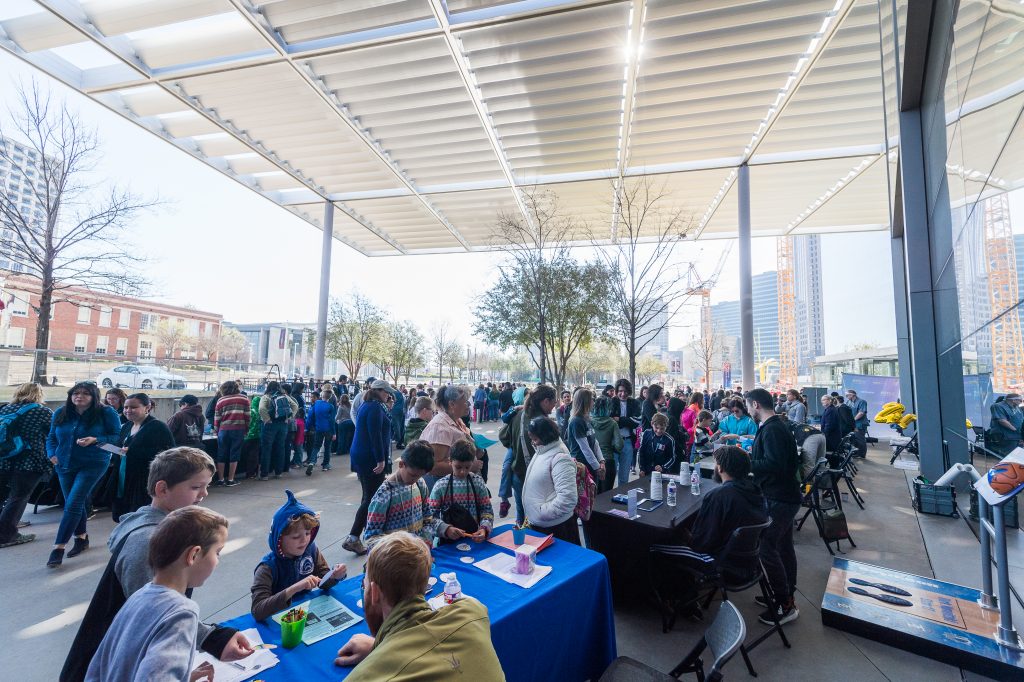

Like so many community events scheduled in the middle of March, talkSTEM’s 4th annual Pi Day Math Festival – freely accessible to all – was canceled. This was to be the biggest Festival that we would have organized, together with our fantastic partner, the AT&T Performing Arts Center. Being purists, we have had our celebration of Math in the Real World on March 14 for the past few years and were excited that this year, thanks to Pi Day falling on Saturday, the first day of spring break, we would have an even bigger turnout than last. Given that we had 1,000 people in our 3-hour festival last year, we worked long and hard planning an expanded festival where the many families who we knew were planning on attending would have a unique, educational, and safe time. We decided to run the Festival for 4 hours (and not 3) this year and to have seating and food options in place so families could be comfortable if they needed to wait their turn at certain activity stations. Over 30 different organizations agreed to participate. This year, we were also excited that we’d be joining over 1,000 other organizations globally to celebrate the first International Day of Mathematics (UNESCO announced 3.14 as the International Day of Mathematics in November, 2019).
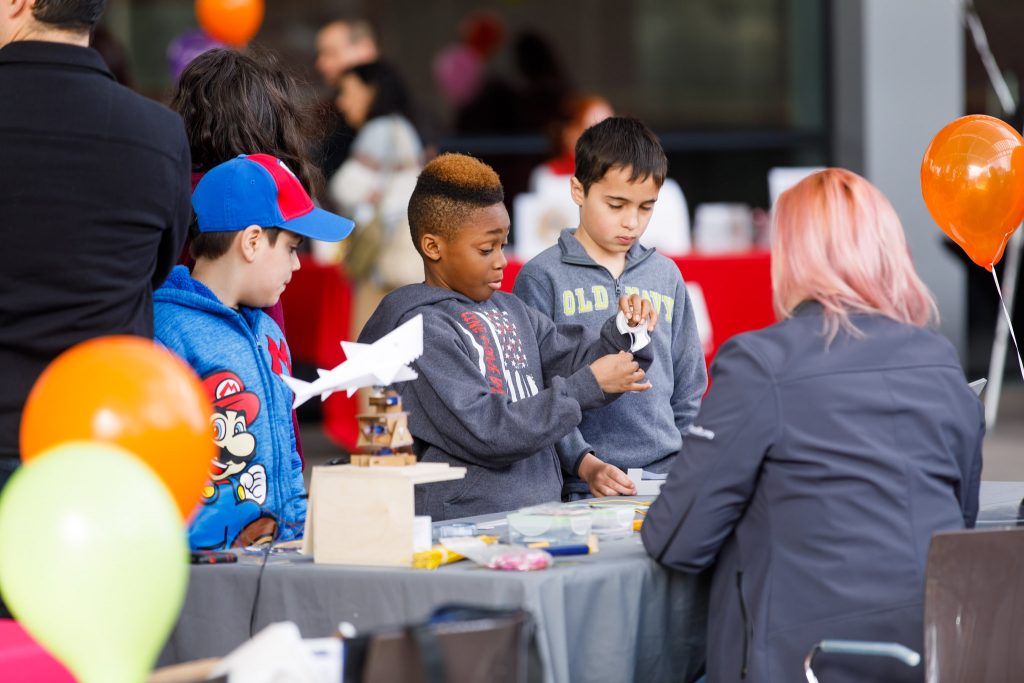

© Photographer, Amber Knowles http://www.amberknowles.com
From December to March, Mary (my enthusiastic and diligent associate) and I spent many hours e-mailing with our partner organizations. All these organizations were passionate about our cause and keen on showing children how their organizational purpose, whether it was art, music, scientific research, sports, architecture, or nature, used mathematics as a language and a tool to communicate questions, knowledge, and ways of seeing the real world around us. Varied groups, ranging from the Texins Jazz Band and the Dallas Black Dance Theater to the Center for BrainHealth at the University of Texas at Dallas and the Kimbell Art Museum were all set to share their unique, mathematical lenses with the public.
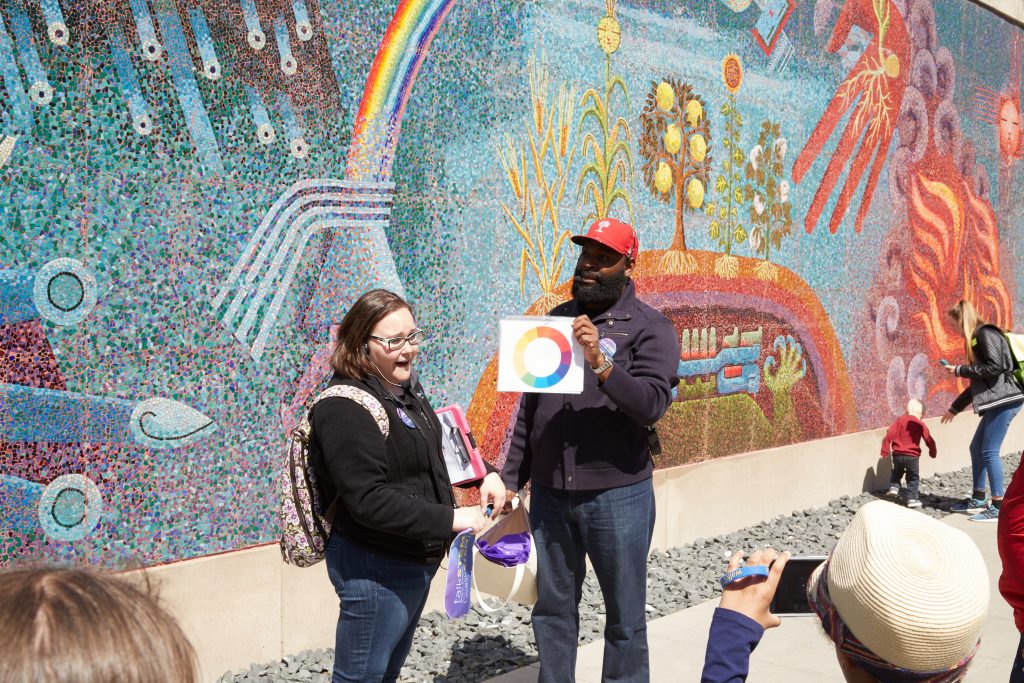

We were excited to plan, together with the amazing Community Engagement team at ATTPAC, the Run of Show at the outdoor stage in Sammons Park and the expanded footprint for our 2020 planned Festival. Which organizations needed power? How many tables would each organization like? Was there a math-integrated inquiry question at each table? We ordered customized Pi Day balloons, we planned out our math-integrated walking tours of Flora Street, we ordered stickers and temporary tattoos to give out to the children. We created flyers, graphics, planned social media, and printed signage.
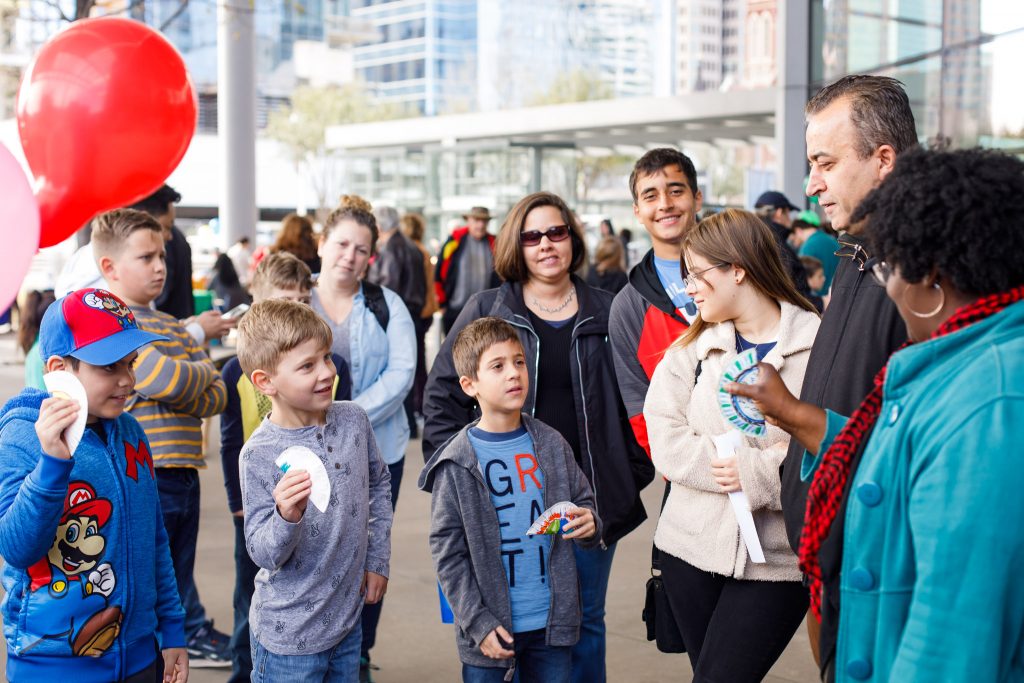

© Photographer, Amber Knowles http://www.amberknowles.com
This is the backstory for talkSTEM’s First Virtual Math Festival. With all the amazing creative energy focused on showing children the breadth and wonder of Mathematics that we had tapped, I felt we had to find a way to share it with as many children as we can reach and am happy to announce the launch of the Virtual Math Festival, one that I hope will engage and inspire many hundreds or thousands of children and their adults.
Where did the videos that you can view on our YouTube channel come from? We did a good amount of filming on Saturday, March 14, from 10am onward. I met with a few participants who were part of our “performance line-up” – the Physics of Dance workshop and the Exchange between the If Then ambassadors and the Girls Do STEAM team. We met at the dance studio at Greenhill School, thanks to the school’s willingness to support our work and we are grateful to Michael Orman, manager for the Marshall Family Performing Arts Center at Greenhill School, for his time. Nycole Ray, the Artistic Director at Dallas Black Dance Theater:Encore! who had planned the Physics of Dance workshop on the outdoor stage at the Festival brought two other, extremely talented dancers from the Ensemble with her so they could illustrate the physics concepts she planned on presenting. We also met with Drs. Julie Mirpuri and Kirsten Tulchin-Francis, two incredible scientists from UT Southwestern Medical Center and from Texas Scottish Rite Hospital for Children respectively, who are also AAAS If Then ambassadors and the three high school juniors from Greenhill School who have created the Girls Do STEAM journal for prek-5 girls. These people came out that Saturday morning to work on the videos that we are freely sharing on the talkSTEM YouTube channel because they wanted to contribute their passion and their knowledge to experiences that children can learn from. The other critically important person who came out to work with us was our talented videographer, Xandy Smith. I am humbled by their belief in what we are building and am grateful for their faith in our work. We spent several inspiring and fun hours filming the performances and a few of the Virtual Math Festival activities – which you can access on the Festival YouTube playlist.
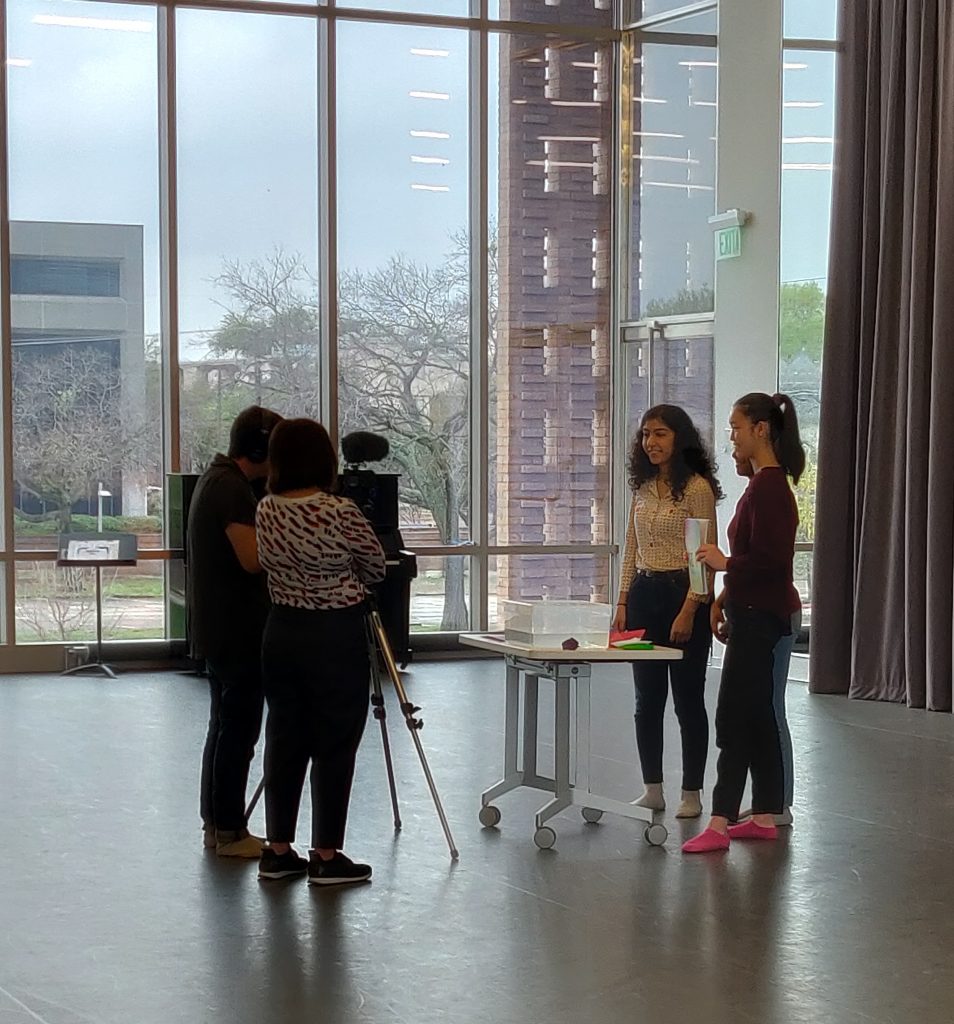

Other videos have also been submitted by our flexible partner organizations over the last few days. More will be submitted in the days and weeks to come as they can gain access to the materials, people, and equipment they need to make these videos – given limitations on their movement during the Coronavirus pandemic. We will be adding to the Festival playlist as we receive these contributions. There are currently 15 videos up and I expect that number to rise to 20-25. We will continue to accept videos over the weeks and months to come and encourage you to subscribe to our YouTube channel so that you can stay up to date.
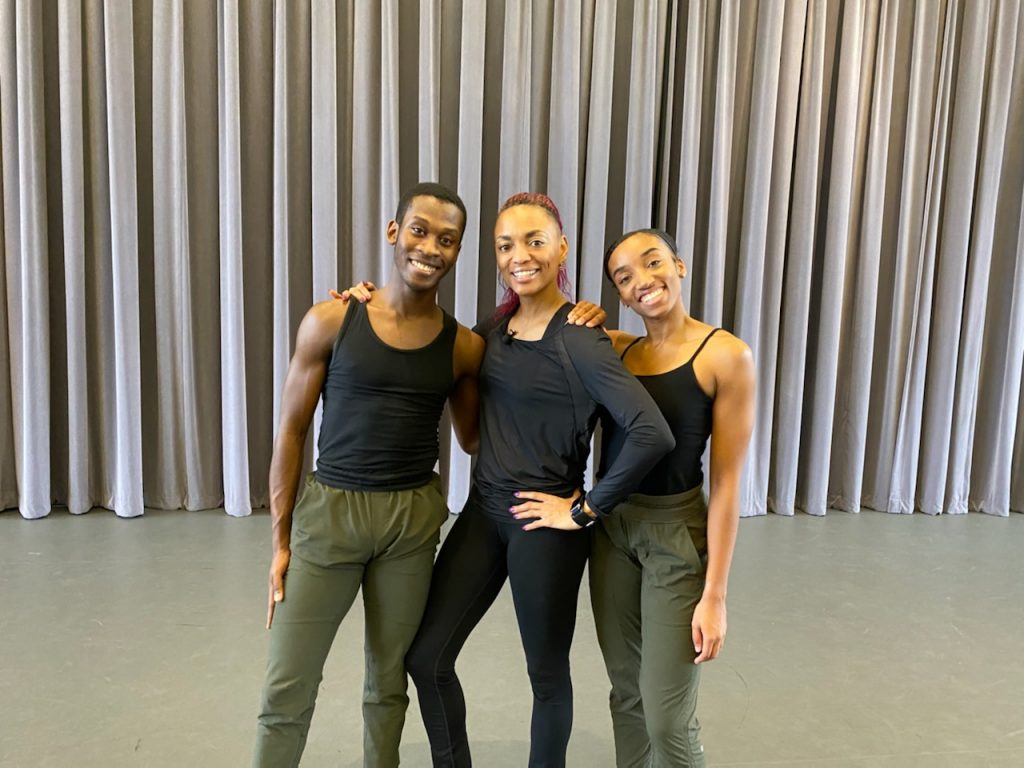

The Virtual Math Festival represents not just a convenient e-learning opportunity for children, it is also a set of varied activities that teachers can freely use in classroom and afterschool settings and that community educators can use in their settings too. It speaks to students who may enjoy dance, music, sports, the outdoors, art, science, and who can connect to math using these activities and fields. We need to expand definitions of what is math and who does math since we know that by 8th grade or earlier, this school subject is a key reason that many students self-select out of further STEM educational experiences. Let’s expand definitions and build connections so that all children can see themselves and their lived experiences as being relevant in STEM/STEAM learning experiences. After all, mathematics was created not as a textbook subject but as a means to explore and understand our world.
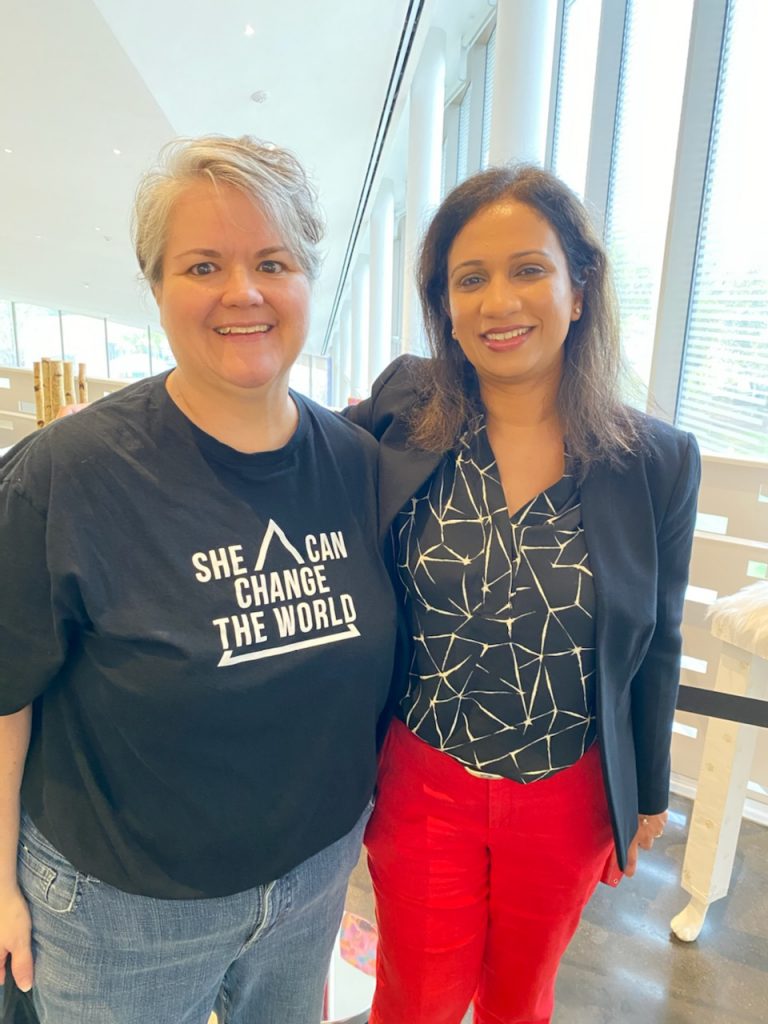

We have modified the “passport” that each child would have received as their guide for the Festival as a freely downloadable document on our website in the hope that this will help parents and teachers to provide guidance and structure. We know that children of varied ages from pre-k through 8th grade will enjoy the activities in our Virtual Festival – younger children needing more guidance and older children being able to work more independently.
I founded talkSTEM five years ago, in March, 2015, with the goal of providing a platform for the sharing of perspectives that would engage our youth and would inspire us all, as the adults who care about our children, students, and citizens and who do the creative work to design educational experiences for them. I am inspired by the work done by so many of the people I have come to know and admire, who work in talkSTEM’s Math Festival participating organizations. I am thrilled that, despite having had to cancel our annual celebration on Pi Day, we are able to present to you our 4thannual Math Festival (virtual, this time). I hope that this reaches thousands of children and their adults – whether they “like” math or not. The goal is for us all to dance, to go on a walk, to design an artwork, to listen to some music….. to see the world through the lens of math through these activities and many others, and to appreciate that math is a broad collection of diverse activities that we ALL do.
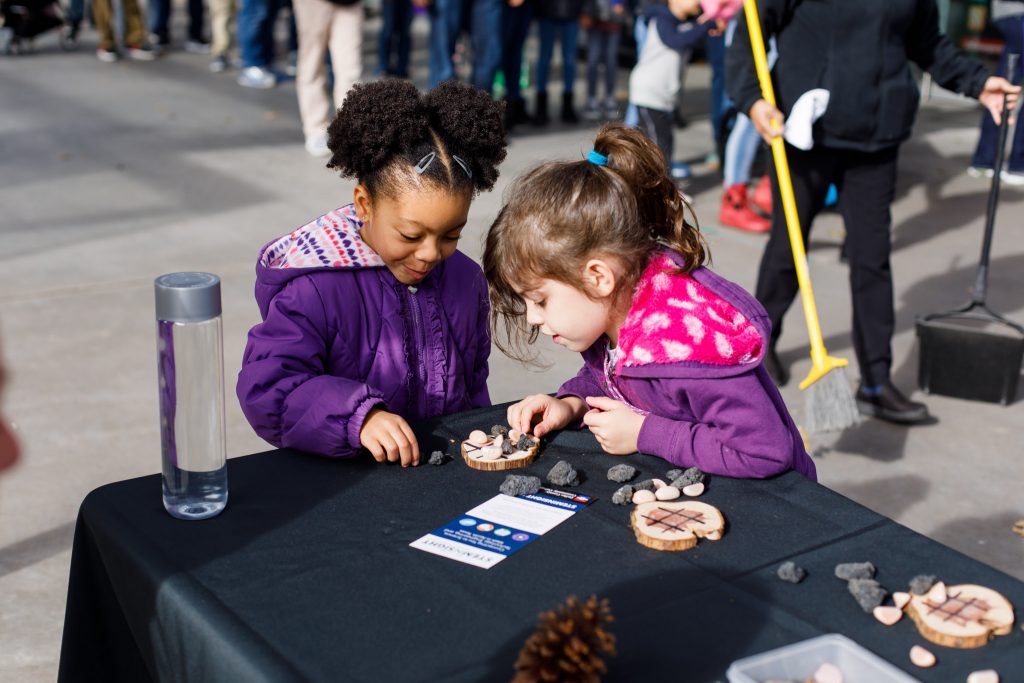

© Photographer, Amber Knowles http://www.amberknowles.com
As I write this blog post, my home city has announced that we will be practice Shelter in Place from tomorrow onward. Social distancing will continue over the weeks to come and I hope that parents and teachers will enjoy the fruits of our collective labor represented in our Virtual Festival. I’d love to hear from you if you do use any videos so I hope you will take us at our word and share on social media. After all, we can grow our community even as we take the necessary precautions that we need to at this point. So I urge you to join the talkSTEM community, celebrate the creative math and science that your children and students can continue to do at home, and share your perspectives with us.
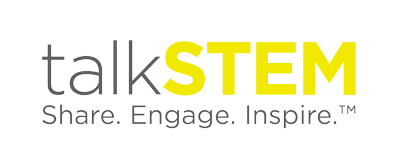
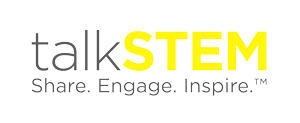

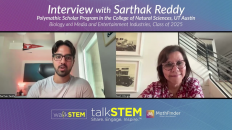
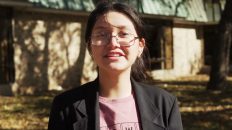


1 comment